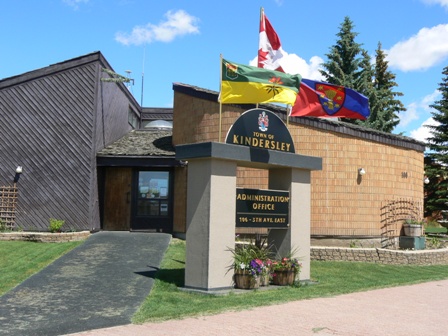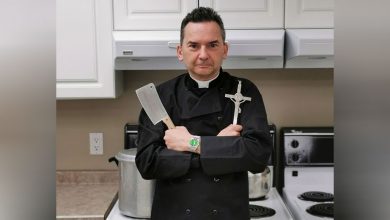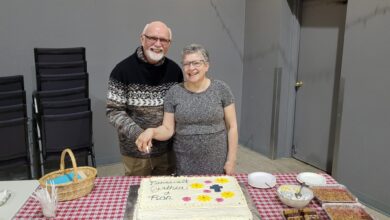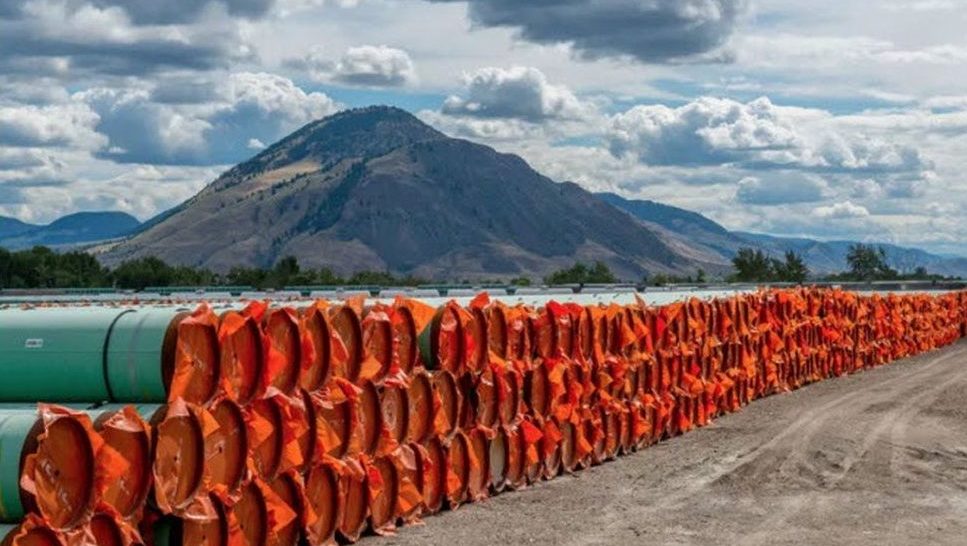
Kindersley Urges Feds to Reconsider Gun Ban
By Mallorie Rast
Following the Federal Government prohibition of 1500 gun types, the Town of Kindersley has followed in the example of other western Canada municipalities and is urging the Federal Government to revoke its Criminal Code Amendment.
In a nation-wide move without prior public announcement, the Federal Government announced on May 1st that it was enacting a legislative change to the Criminal Code. This amendment included a ban on “assault” and “assault-style” firearms, effective immediately.
The ban named 9 firearm models, and also encompassed firearms with a bore of 20 mm or greater, and/or that were capable of discharging a projectile with a muzzle energy greater than 10,000 Joules. The upper receivers of M16, AR-10, AR-15 and M4 pattern firearms were also prohibited. Altogether, over 1500 gun types are affected by the ban.
Gun owners who had these previously-restricted firearms were notified via letter that their gun registrations were nullified and were instructed to not remove the arms from their homes unless it was in accordance with the amendment. Owners were given three options in response to the May 1st ban, owners could await a buy-back program to be set in place by the government, conduct an export of the firearm legally with proper firearm licence privilege, or take the firearm to an approved firearms business and have it deactivated. An Amnesty Order was also put in place until April 30th, 2022, to protect the owners of the affected firearms while they took one of the three above measures to be in compliance with the May 1st amendment.
This federal move came after April’s mass shooting in Nova Scotia where Gabriel Wortman killed 22 people, including a police officer. The shock of the terrible incident reverberated across the country, and the amendment came less than two weeks later.
“Assault-style firearms designed for military use have no place in Canada,” said Prime Minister Justin Trudeau in a statement released on May 1st. It was further stated elsewhere that “assault” and “assault-style” weapons serve no beneficial purposes, and their primary use is seen in incidents such as the Nova Scotia shooting in April 2020, and the École Polytechnique Massacre, also known as the Montreal Massacre in which 14 women were killed in 1989.
The announcement has been met with mixed reception from Canadians. Some applaud the move towards greater restrictions on guns, while others question the effectiveness of this ban on criminal activity.
Among these voices are Doug Minchin, a one-time gun enthusiast and collector from Kindersley and Kevin Fehler, a west central regular and restricted firearms instructor of 15 years standing. Both men noted that it seemed that the ban restricted the law-abiding citizen more than it inhibited an individual from committing a criminal act.
For example, the ban named the Ruger Mini 14 in a clear response to the 1989 bloodbath as this was the firearm type that was used in the Montreal Massacre. While this is a nod to public safety, says Fehler, its practicality is doubtful, as merely banning a gun has not been shown as an effective way to protect Canadian citizens.
A quick look at the most recent, and deadliest, mass shooting in Canada to date illustrates this point. Each one of the five weapons used by Wortman in April’s shooting were illegally obtained. RCMP have confirmed that Wortman did not have a firearms licence; three of his weapons were from the USA, one was from Canada, and one was stolen from Constable Hedi Stevenson after she was killed by Worton.
“It is clear that this ban has very little to do with public safety,” Felher said while reviewing the data. “It is a symbolic show to ban all of these firearms, but in reality, they aren’t doing a thing;” he said in reference to the government.
Some of the guns that are now prohibited by the ban are privately owned by law enforcement officers who used the firearms as a means of practising their accuracy outside of the mandated twice a year practises.
“The ban is taking guns away from the law-abiding citizen and from those whose job it is to protect us, not from the mass-shooter,” says Minchin.
Both men agreed that sporting with firearms can be an enjoyable past-time; one that can be enjoyed alone on the range, or as one that can be a bonding experience between a father and son, as was experienced by Minchin. Minchin recalled the thrill of being able to experience gun shows across the western provinces with his father. Many of the events took a family affair as men and women brought their firearms, baking, canning and other craftsmanship to be sold and traded across western Canada. “There is a financial and family impact because of events like these disappearing in Canada, it is a pity that people are against firearms,” says Minchin.
Fehler says he understand how fear and other anti-gun feelings can be generated in communities where guns have come to mean only terror and criminal acts. A way to fight this lop-sided view is education, both on the community level and on the government level. “So many people asking for laws and making laws have very little knowledge of what they are talking about.”
Felher and Minchin each said that they applauded the Town Council of Kindersley for taking the step to urge the Government to revoke the May 1st ban. Town CAO Audrey Hebert said the Council was following in the footsteps of other western communities around them, most specifically of Cold Lake in Alberta. Cold Lake drew up a letter to the government and then passed it along to other communities in western Canada, urging them to adopt the same stance. Herbert brought the letter to the Council’s attention, and in an August 10th meeting they adopted the gentle protest as their own.
In its urging of the government to revoke the May 1st amendment, the Council stated that “the Town of Kindersley supports initiatives to end violence; however, feels very strongly that the Government of Canada is wasting valuable resources and taking the wrong approach to gun control that will have zero effect on gun crime.” Instead, the Council suggested that the following three points be considered instead of the ban:
“Target crime and focus on enforcement through enhanced enforcement capacity for law enforcement and border services, as well as harsher punishments for firearms trafficking and crimes involving firearms
Collect and share relevant data on crime involving firearms through improved collection and the types of crime being committed. This data is critical for supporting law enforcement and border agencies efforts, as well as informing policy and legislation
Collaborate with the firearms community and industry to support communication, training, and public education regarding firearms to create a multi-faceted approach rather than implementing a ban in isolation”
Hebert says that it is hard to tell what the government response will be, or how long it will be in coming.
For the latest information and for more updates on everything Kindersley ‘Like’ the Kindersley Social Facebook page below…








































